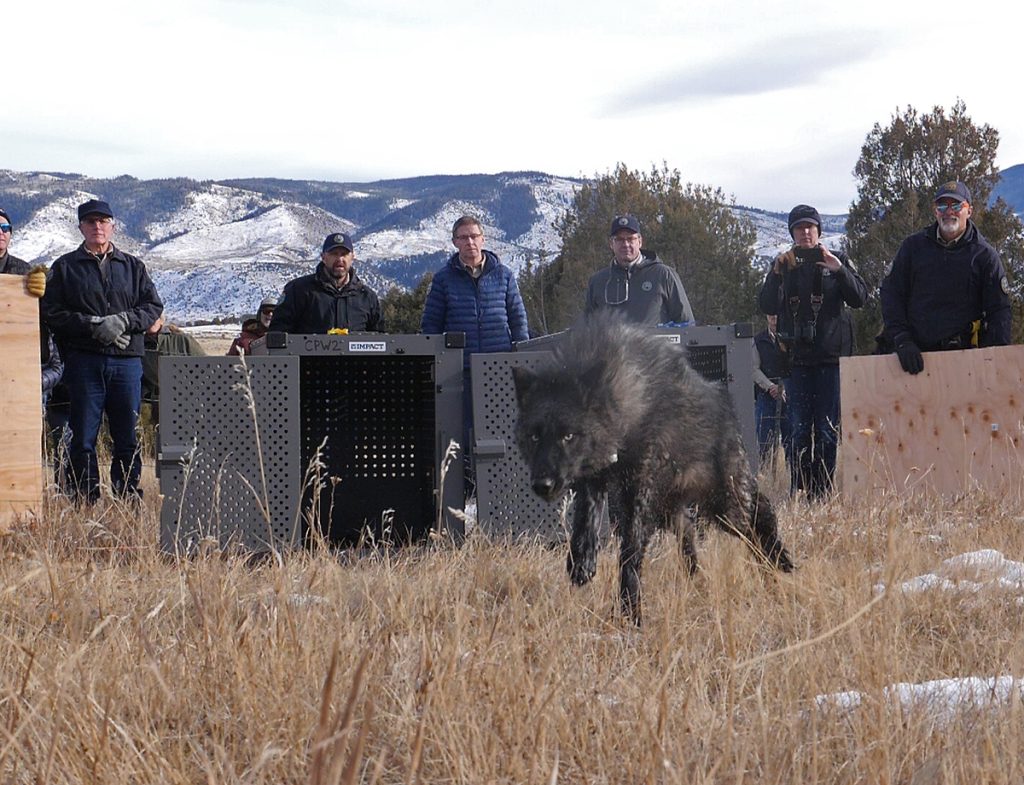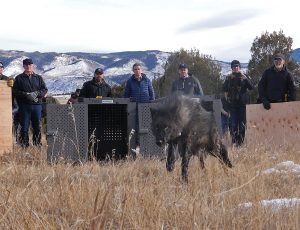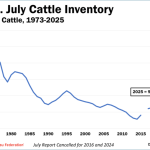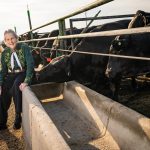Bill seeks to reallocate funds for new wolves to ease health insurance costs
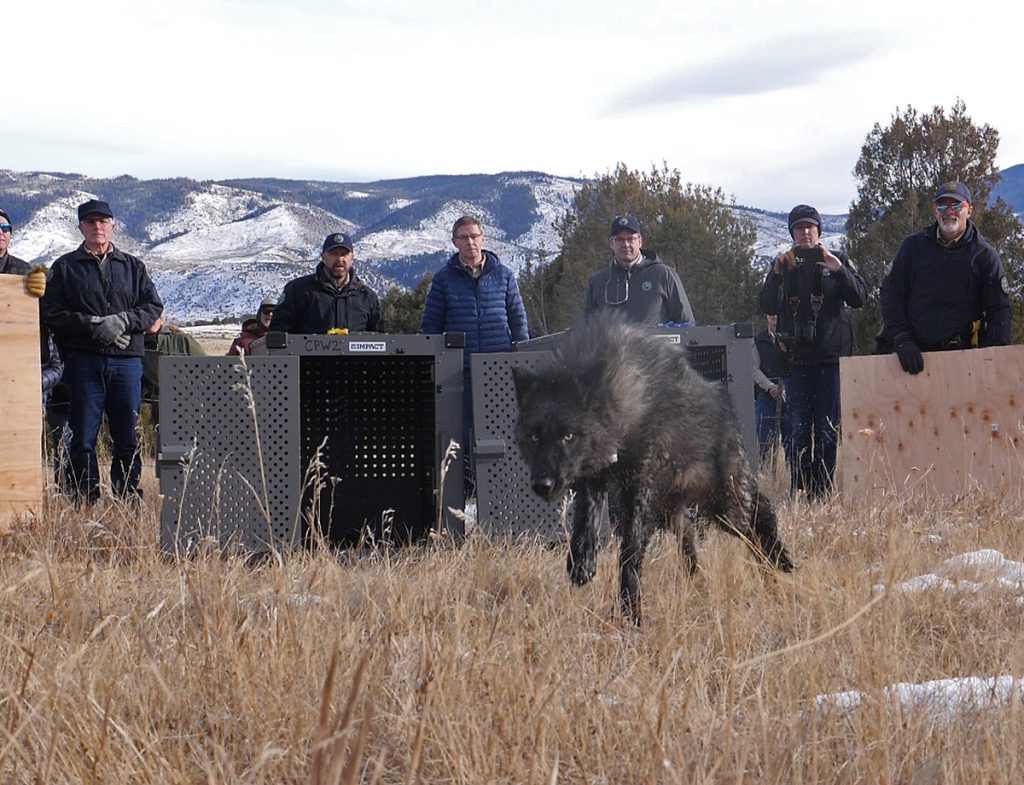
A bipartisan bill seeks to reallocate funding for one year that would be used to capture and release another round of wolves in late 2025 or early 2026 to Colorado’s Health Insurance Affordability Enterprise which helps Coloradans lower their health insurance costs. According to the sponsors, by not bringing in new wolves into the state, Colorado can focus on managing the existing wolves more effectively and save significant financial resources.
The bill is coprime-sponsored by Sen. Dylan Roberts, D-Frisco, Sen. Marc Catlin, R-Montrose, Rep. Meghan Lukens, D-Steamboat Springs, and Rep. Matthew Martinez, D-Monte Vista, and is co-sponsored by a broad coalition of bipartisan legislators in both the Senate and the House.
Gov. Jared Polis has called the General Assembly back to the Capitol for a Special Session of the legislature to begin on Aug. 21, 2025. The session is being called to address the passage of the “One Big Beautiful Bill Act” (H.R.1) by the U.S. Congress and President Trump which immediately put Colorado into a nearly $1 billion budget deficit which must be quickly balanced by the legislature, as required by the state constitution. According to a release by the sponsors, the U.S. Congress’s failure to extend enhanced Health Insurance Premium Tax Credits in concert with the 2025 Marketplace Integrity and Affordability Final Rule and individual market changes set forth in H.R.1, will have a significant impact on health insurance rates in Colorado’s individual health insurance market, as well as broader market impacts.
SOARING COSTS
According to Proposition 114, which voters narrowly passed to mandate the release of wolves, the program was anticipated to cost $800,000 annually. This past fiscal year, it cost the state nearly $3.5 million in taxpayer dollars as conflict management and depredation reimbursement costs have soared.
“This bill is the right thing to do given our state’s severe financial challenges that threaten the pocketbooks and health insurance costs of hardworking Coloradans,” Roberts said. “As chairman of the Senate Agriculture & Natural Resources Committee who represents many rural and mountain communities impacted by both wolf reintroduction and high health insurance prices, I know personally that my constituents would like our state to focus on lowering health insurance costs, managing our budget challenges, and getting proper management of our existing wolves under control. Now is not the time to be spending precious taxpayer dollars on new wolves — let’s focus on lowering costs for Coloradans and balancing our budget.”
Sen. Marc Catlin said Western Slope families and CPW field staff are carrying the daily impacts of wolf reintroduction.
“Pressing pause on future releases gives the state the space to fix what isn’t working, fully fund landowner support, and carefully steward scarce dollars during a budget crunch,” he said. “That’s the responsible way to honor the will of the voters while recognizing the realities on the range. This bill doesn’t end reintroduction, it ensures Colorado Parks and Wildlife can repair its programs while we work to stabilize the state’s budget.”
Rep. Meghan Lukens said now is the time for responsible, measured action.
“Rural families, ranchers, and landowners are dealing with the daily realities of wolf reintroduction, and we must ensure the programs in place are strong and working as intended,” she said. “Pressing pause on future releases allows us to manage existing wolves effectively and focus on what matters most: lowering costs, protecting livelihoods, and making every taxpayer dollar count. Redirecting these limited resources will help us invest in critical priorities like making health insurance more affordable for hardworking Coloradans.”
Rep. Matthew Martinez said a pause on new wolf reintroductions will allow the state to save taxpayer money and focus attention on lowering health insurance costs and addressing budget challenges.
In a release, lawmakers said since state budget year 2023-24, the cost of the wolf reintroduction program has far exceeded the $800,000 per year that voters were told in the 2020 State Ballot Information Booklet. For just the most recent year alone, 2024-25, the program cost the state $3,457,613 with funding requirements for livestock conflict reduction and depredation compensation to continue to rise in the coming years. These cost overruns have occurred during a time when the state government has had to make drastic cuts to state spending for transportation infrastructure, Medicaid services, education and more. Now, with ongoing inflationary pressure, a substantial reduction in available federal funds for state operations due to the passage of H.R. 1 by the Congressional and the expiration of health insurance affordability tax credits that will cause insurance costs for Coloradans to spike, and Colorado’s balanced budget requirement, the State of Colorado is faced with a challenging fiscal situation and Colorado families are at risk of losing access to health insurance.
Programmatically, Colorado’s legal requirement to reintroduce and establish a self-sustaining population of gray wolves has been objectively successful: according to CPW, the wolves reintroduced into Colorado in late 2023 and early 2025 have formed multiple packs and have and continue to reproduce multiple litters of offspring and as of August 2025, there are over 30 wolves in Colorado with that number anticipated to grow as more offspring from the current breeding season are confirmed. Unfortunately, wolf-livestock conflict has only increased as more wolves have been introduced and reproduced which has further escalated the cost to taxpayers.
The Rocky Mountain Wolf Project, the group responsible for placing wolves on the ballot, said Colorado’s wolves have killed a tiny fraction of a percent of the livestock in western Colorado.
In an email, the group said, “Yet, to hear some members of the General Assembly tell it, ‘Hell is empty and all the devils are here.’ Reality could not be further from the livestock industry’s “woe is me” narrative.” The group said Roberts’ bill could “subvert the will of Colorado voters and kill the wolf restoration program in the cradle.”
